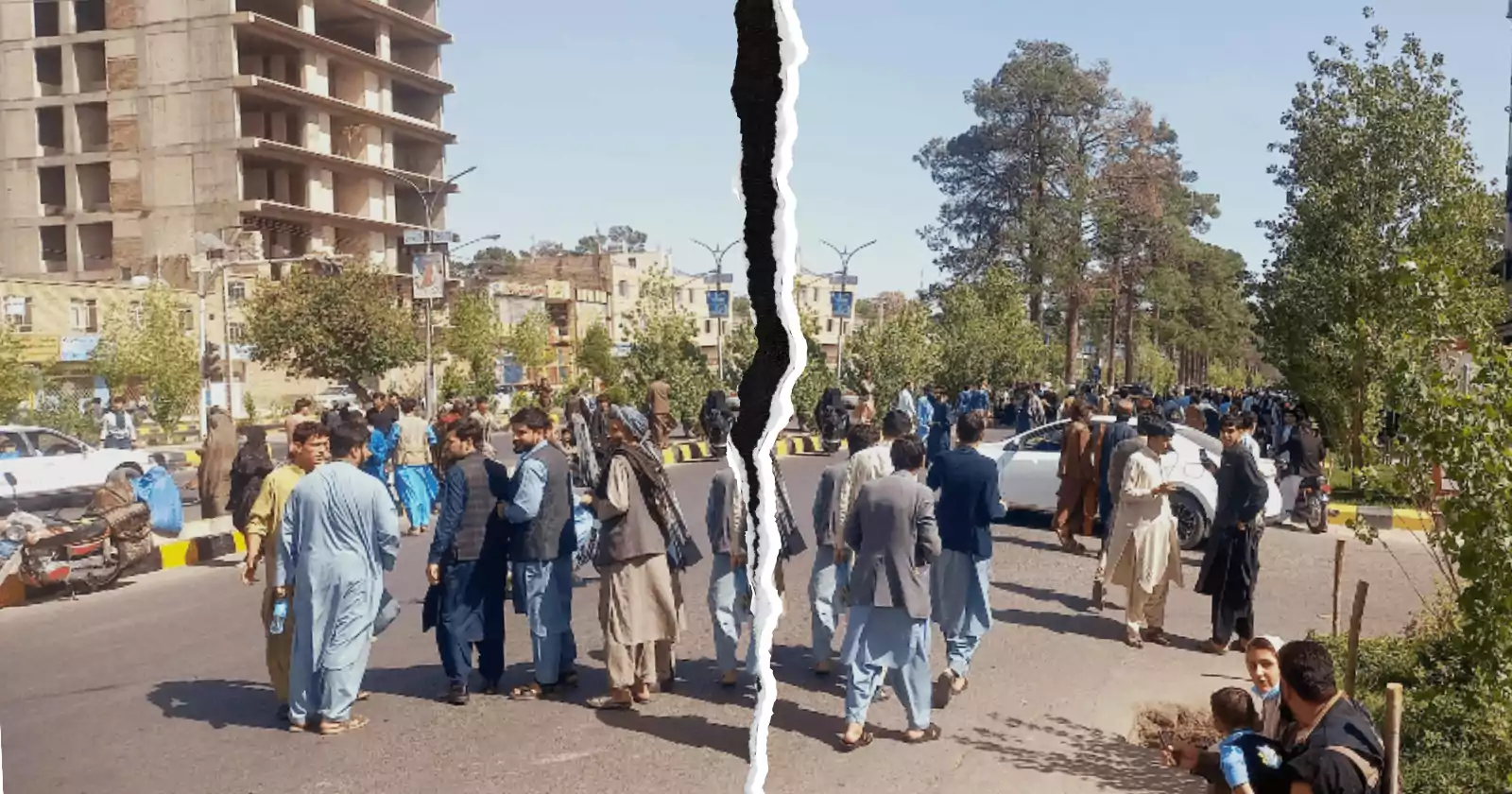In a significant seismic event, a powerful earthquake, registering at a magnitude of 6.3, struck western Afghanistan. This major temblor was accompanied by a series of aftershocks, including magnitudes of 5.5, 4.7, 5.9, and 4.6, sending shockwaves of concern throughout the region.
People are out on the streets of Herat city after a 6.10 richter earthquake hit the region. #herat #earthquake #Afghanistan pic.twitter.com/44MqBKoaM7
— Masood Shnizai (@ShnizaiM) October 7, 2023
The United States Geological Survey (USGS) reported that the epicenter of the initial earthquake was located approximately 40 kilometers (25 miles) northwest of Herat, the largest city in the region. While the full extent of the damage is still emerging, the quake has already claimed one life and caused numerous injuries.
Videos shared on social media depict the harrowing moments as residents and shopkeepers fled their buildings in Herat. Witnesses described scenes of chaos as the ground trembled beneath them. Walls cracked, plaster fell, and buildings sustained damage, with some walls and portions of structures collapsing.
Bashir Ahmad, a 45-year-old resident of Herat, recounted the frightening experience, saying, “We were in our offices, and suddenly the building started shaking. Wall plasters started to fall down, and the walls got cracks; some walls and parts of the building collapsed.” He expressed deep concern as network connections were disrupted, making it difficult to contact family members.
The National Disaster Management Authority expressed preliminary estimates of casualties, but there are fears that the toll could rise significantly, especially in rural and mountainous areas where landslides have been reported.
The USGS also issued a preliminary report warning of “significant casualties” and describing the disaster as “potentially widespread.” Past events with similar alert levels have necessitated regional or national-level responses.
Herat, often regarded as the cultural capital of Afghanistan, is home to an estimated population of 1.9 million. Tragically, this is not the region’s first encounter with devastating earthquakes. In June of the previous year, a 5.9-magnitude quake struck, claiming over 1,000 lives and leaving tens of thousands homeless—a catastrophe of historic proportions.
Earlier in the current year, a magnitude 6.5 earthquake near Jurm in northeastern Afghanistan resulted in the loss of 13 lives. The country is frequently susceptible to earthquakes, particularly in the Hindu Kush mountain range, situated at the convergence of the Eurasian and Indian tectonic plates.
The grim reality of this earthquake is exacerbated by Afghanistan’s ongoing humanitarian crisis, marked by the withdrawal of foreign aid since the return of the Taliban to power in 2021. The seismic event further compounds the challenges facing the country and its people.
As rescue and relief efforts continue in the aftermath of this major earthquake, the world watches with empathy and concern, hoping for a swift and effective response to mitigate the suffering caused by this natural disaster.

Leave a Reply